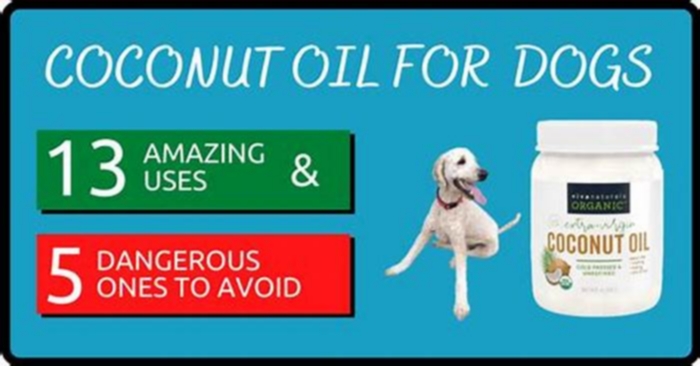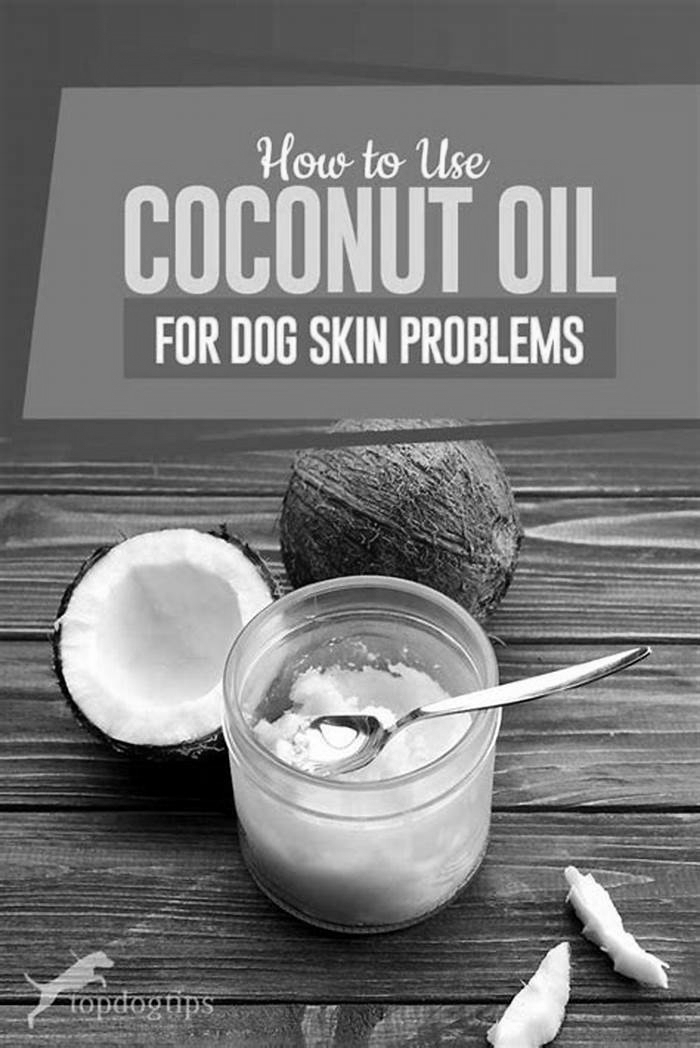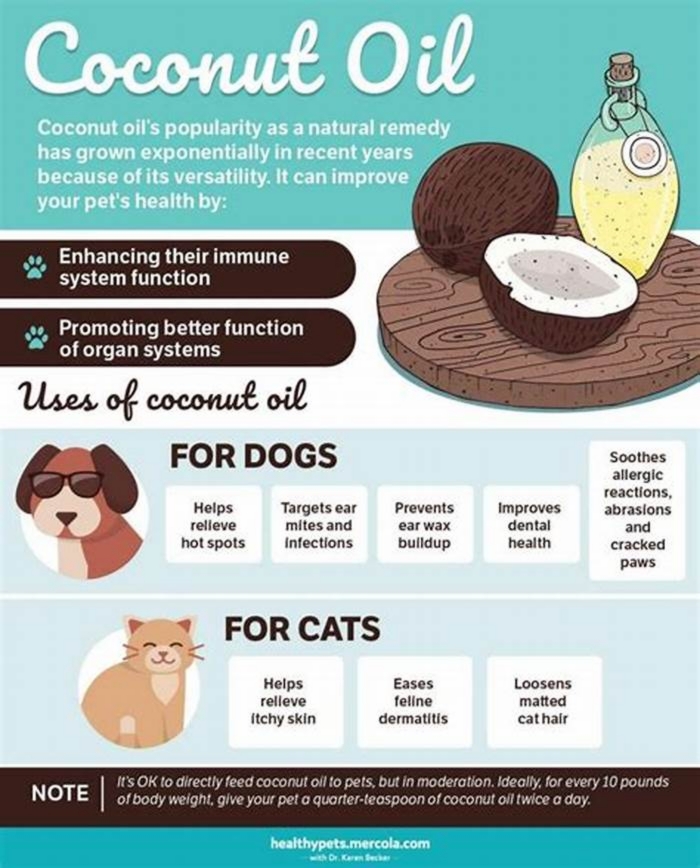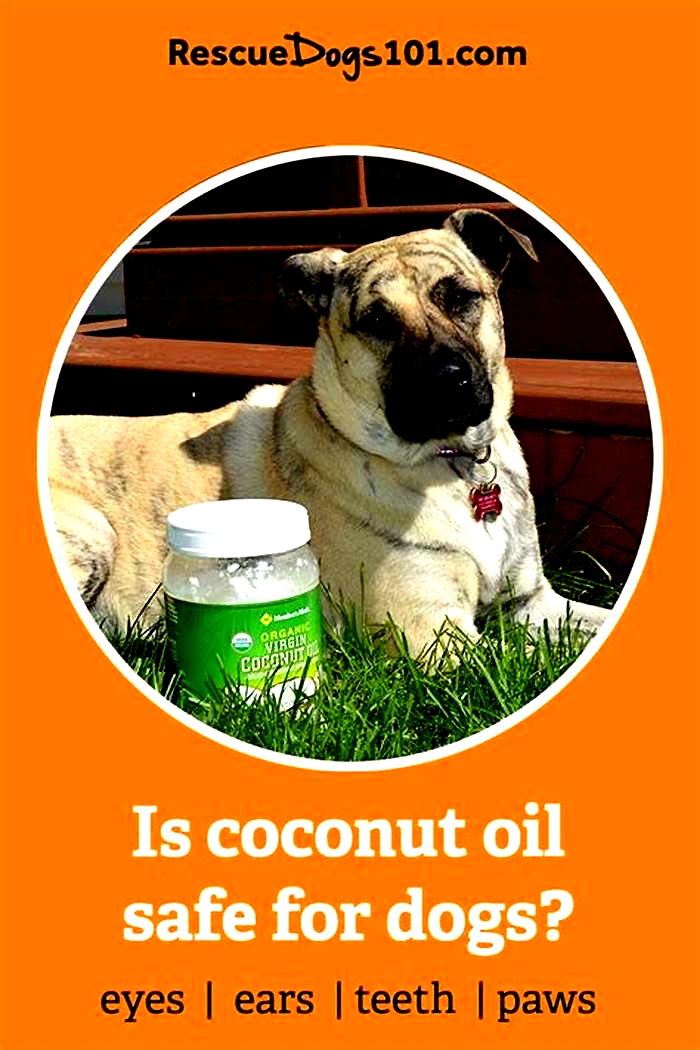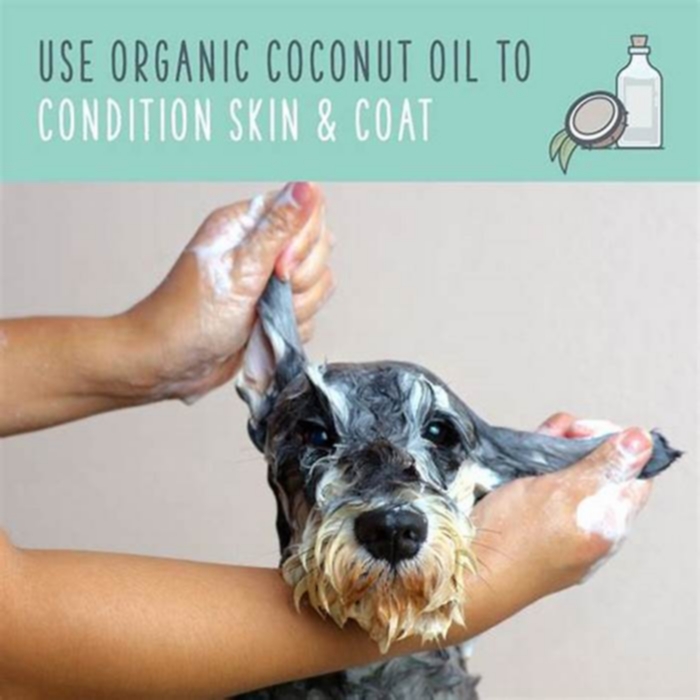What are the benefits of coconut oil for dogs
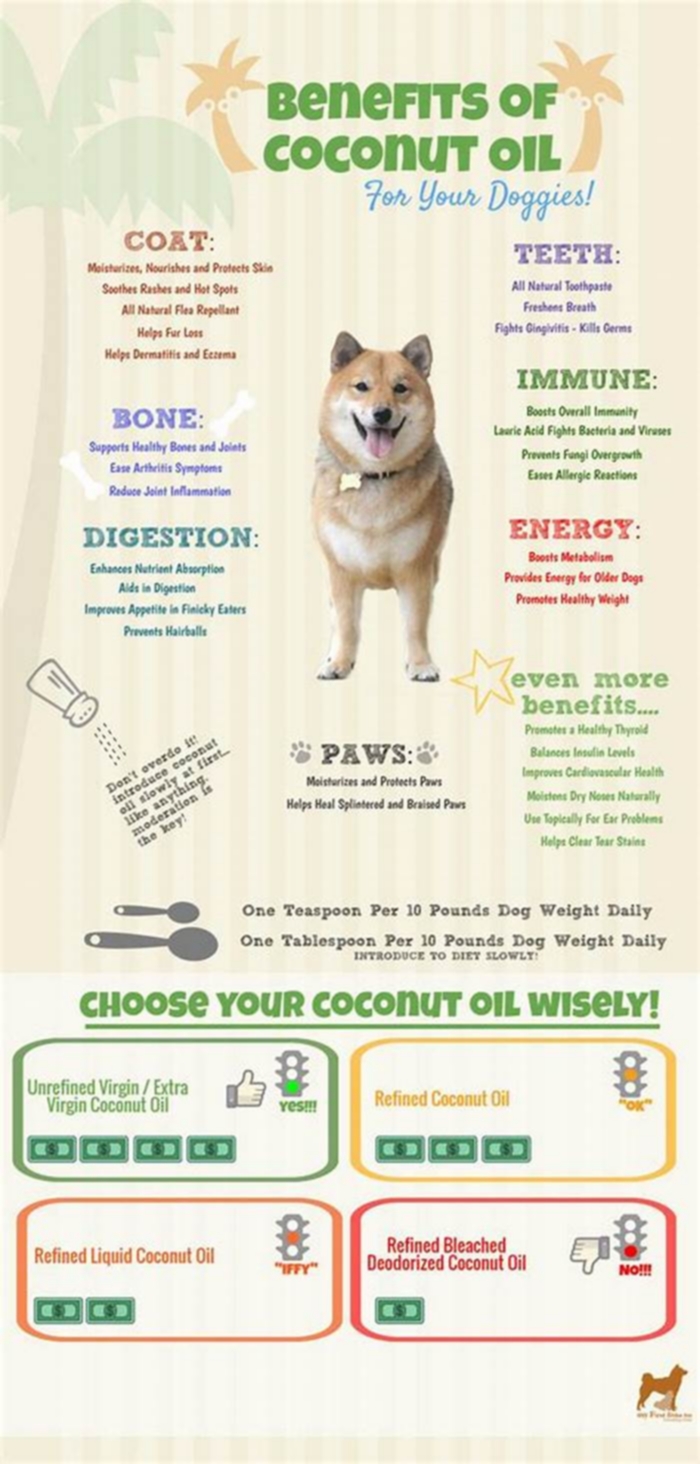
Coconut Oil for Dogs
Coconut oil has become quite the craze in recent years as a popular supplement for people, touted for a wide variety of possible benefits. Coconut oil can be consumed orally, directly placed on food, applied to the skin topically, or contained in supplement form.
But is it also OK to give coconut oil to dogs?
While in very small amounts coconut oil is not likely to cause an issue for your dog, regular use in dogs is not recommended.
Key Takeaways
- Regular use of coconut oil in dogs is not recommended.
- Always consult with a veterinarian before adding coconut oil to your dogs routine.
- While coconut oil offers potential benefits for dogs, it also poses risks such as stomach upset, pancreatitis, and allergic reactions.
What Is Coconut Oil?
Coconut oil comes from the white flesh of the coconut fruit, part of the coconut palm tree. This oil is extracted and is categorized into two typesrefined coconut oil and unrefined coconut oil.
Unrefined coconut oil, sometimes called virgin coconut oil, is minimally processed and retains its flavor; the meat of the coconut is pressed to produce the oil. Refined coconut oil has only a mild flavor but can be used at high temperatures, such as when used for cooking. These oils are then made into preparations for the skin or for oral ingestion.
Is Coconut Oil Safe for Dogs?
In small quantities, coconut oil can be given to dogs for a variety of reasons, but mainly for its medium-chain triglycerides (MCTs) as a source of saturated fat, also known as the good fat.
MCTs are also found in dairy products and palm oil. Coconut oil should be given under the guidance of your veterinarian and gradually introduced into your pups diet. Too much too fast can cause significant stomach upset, and a little bit goes a long way. As with any food, watch for signs of an allergic reaction such as hives or itchy skin.
Coconut oil can be given to dogs in pure form, added to the food or as an oral supplement. It can also be made into a topical preparation for skin issues.
Cold water fish oils provide an excellent source of omega-3 fatty acids. Their propensity to cause stomach upset in dogs is also a lot lower than that of coconut oil.
Can You Use Coconut Oil for a Dogs Skin?
Veterinarians typically do not recommend using coconut oil for your dogs skin because the risk often outweighs the benefits.
Coconut oil is often used to hydrate a dogs skin, reduce inflammation, and provide both antibacterial and antifungal properties. However, this remains anecdotal in dogs.
While there are studies in people, there is no scientific evidence supporting the benefits of coconut oil for use on dog skin.
Applying anything to a dogs skin should be done with caution, as dogs tend to lick themselves often and will ingest the substances.
While coconut oil can be ingested, if too much is ingested or its in a form that is not meant to be ingested, significant stomach upset and pancreatitis will develop. Coconut oil applied to the skin can also cause an allergic reaction, making any current skin condition or itching worse.
Can You Use Coconut Oil for a Constipated Dog?
Coconut oil is not helpful for dogs with constipation, as large quantities ingested will cause painful stomach upset and pancreatitis. Even in small quantities, this painful condition can still occur, along with a possible allergic reaction.
In humans, coconut oil is used because MCTs are more easily digested than long-chain fatty acids (LCTs) to help with conditions that cause decreased absorption or maldigestion of fats. Coconut oil is rapidly absorbed by the intestinal tract; therefore, it will not be effective as a laxative in constipated dogs.
Benefits of Coconut Oil for Dogs
Some possible benefits of using coconut oil in dogs are extrapolated from its successful use in humans. They are:
Rich in fatty acids (MCTs)
Lowers cholesterol
Reduces inflammation
Exhibits antibacterial, antifungal, and antiviral properties
Acts as an antioxidant
Aids digestion
Supports heart and brain function
Assists with inflammatory bowel disease (IBD) by reducing gut inflammation
Aids cognitive function
Decreases seizure activity in epileptic dogs
Claims of use in dogs that lack credible studies, even in people, include:
Risks of Coconut Oil for Dogs
Using coconut oil on dogs, whether through ingestion or topical use, carries the following risks to their health:
While coconut oil offers potential benefits for dogs, including skin health, digestion support, and support for other organ functions, it also poses risks such as stomach upset, pancreatitis, and allergic reactions.
Always consult with a veterinarian before adding coconut oil to your dogs routine, to ensure its appropriateness for their individual health needs.
WRITTEN BY
Barri J. Morrison, DVMVeterinarian
Barri Morrison was born and raised and currently resides in Ft. Lauderdale, Florida. She went to University of Florida for her...
What Are The Benefits Of Coconut Oil For Dogs
[ad_1]Coconut oil has become increasingly popular in recent years, not just for humans, but also for our furry friends. Many pet owners are turning to coconut oil as a natural remedy for various health issues in dogs. From improving skin and coat health to boosting immune function, the benefits of coconut oil for dogs are plentiful. In this article, we will explore the many advantages of incorporating coconut oil into your dogs diet and grooming routine.
Benefits of Coconut Oil for Dogs:
1. Improves skin and coat health: Coconut oil is rich in medium-chain fatty acids, which have anti-inflammatory and moisturizing properties. When applied topically or ingested, coconut oil can help alleviate dry, itchy skin and promote a shiny, healthy coat.
2. Boosts immune function: Coconut oil contains lauric acid, a fatty acid with antimicrobial properties that can help strengthen your dogs immune system and fight off infections.
3. Aids in digestion: Coconut oil can help improve digestion and nutrient absorption in dogs, making it easier for them to digest their food and maintain a healthy gut.
4. Supports joint health: The anti-inflammatory properties of coconut oil can help reduce inflammation in the joints, making it beneficial for dogs with arthritis or joint pain.
5. Promotes dental health: Coconut oil has antibacterial properties that can help prevent plaque buildup and improve overall dental health in dogs.
6. Helps with weight management: Coconut oil can help boost metabolism and promote weight loss in overweight dogs when used as part of a balanced diet and exercise routine.
7. Soothes minor cuts and scrapes: Coconut oil can be applied topically to minor cuts and scrapes on your dogs skin to promote healing and reduce the risk of infection.
Trends in Coconut Oil Usage for Dogs:
1. DIY grooming products: Many pet owners are opting to make their own grooming products using coconut oil as a base ingredient. From shampoos to paw balms, coconut oil is being used in a variety of homemade pet care products.
2. Organic and natural pet care: With the rise of holistic and natural pet care trends, coconut oil has become a popular choice for pet owners looking for natural remedies for their dogs health issues.
3. Increased availability in pet stores: As the demand for coconut oil for dogs continues to grow, more pet stores are carrying a wide range of coconut oil products specifically designed for pets.
4. Integration into veterinary care: Some veterinarians are starting to recommend coconut oil as a supplement for dogs with certain health conditions, such as skin allergies or joint pain.
5. Social media influencers promoting coconut oil: Pet influencers on social media platforms like Instagram are showcasing the benefits of coconut oil for dogs to their followers, leading to increased awareness and adoption of this natural remedy.
6. Coconut oil-based treats and supplements: Many pet food companies are now incorporating coconut oil into their products, such as treats and supplements, to provide additional health benefits for dogs.
7. Increased research on coconut oil for dogs: With the growing interest in natural remedies for pet health, there is a surge in research studies exploring the potential benefits of coconut oil for dogs and other animals.
Common Concerns and Answers about Coconut Oil for Dogs:
1. Is coconut oil safe for dogs to ingest? Yes, coconut oil is safe for dogs to eat in moderation. It is important to start with small amounts and gradually increase the dosage to prevent digestive issues.
2. Will coconut oil make my dog gain weight? Coconut oil is high in calories, so it is important to monitor your dogs intake to prevent weight gain. Incorporating coconut oil into a balanced diet and exercise routine can help promote weight management.
3. Can coconut oil cause allergies in dogs? While coconut oil is generally safe for dogs, some pets may be allergic to it. It is recommended to do a patch test before using coconut oil topically and monitor your dog for any signs of an allergic reaction when ingesting it.
4. How should I introduce coconut oil to my dogs diet? Start by introducing small amounts of coconut oil to your dogs food and gradually increase the dosage over time. Be sure to monitor your dogs stool and overall well-being to ensure they are tolerating the coconut oil well.
5. Can coconut oil be used on all dog breeds? Yes, coconut oil can be used on all dog breeds, but it is important to consider your dogs individual needs and any existing health conditions before incorporating coconut oil into their diet or grooming routine.
6. How often should I apply coconut oil topically to my dogs skin and coat? The frequency of applying coconut oil topically will depend on your dogs specific needs. Some dogs may benefit from daily applications, while others may only need it once a week to maintain healthy skin and coat.
7. Can coconut oil be used as a natural flea repellent for dogs? While coconut oil has some insect-repelling properties, it is not a foolproof method for preventing fleas. It can be used in conjunction with other flea prevention methods, but it should not be relied upon as the sole means of flea control.
8. Is coconut oil safe for puppies? Yes, coconut oil is safe for puppies in moderation. It can help promote healthy growth and development, but it is important to consult with your veterinarian before introducing any new supplements to your puppys diet.
9. Can coconut oil help with my dogs bad breath? Coconut oils antibacterial properties can help improve dental health and reduce bad breath in dogs. You can try brushing your dogs teeth with coconut oil or adding a small amount to their food to freshen their breath.
10. How should I store coconut oil for my dog? Coconut oil should be stored in a cool, dry place away from direct sunlight to prevent it from spoiling. It can be kept at room temperature or refrigerated, depending on your preferences.
11. Can coconut oil help with my dogs allergies? Some dogs with skin allergies may benefit from coconut oils anti-inflammatory properties when applied topically. It can help soothe irritated skin and reduce itching, but it is important to consult with your veterinarian for a proper diagnosis and treatment plan.
12. Will coconut oil help with my dogs dry, cracked paws? Coconut oil can be applied topically to your dogs paws to help moisturize and soften dry, cracked skin. It can also help protect their paws from harsh weather conditions and prevent further damage.
13. Is coconut oil effective for treating hot spots in dogs? Coconut oils antimicrobial and anti-inflammatory properties can help soothe hot spots on your dogs skin and promote healing. Applying coconut oil topically to the affected area can provide relief and prevent infection.
14. Can coconut oil be used as a natural ear cleaner for dogs? Coconut oil can be used as a natural ear cleaner for dogs to help remove dirt and debris from their ears. It has antibacterial properties that can help prevent ear infections and promote overall ear health.
15. How long does it take to see the benefits of coconut oil for dogs? The timeline for seeing the benefits of coconut oil will vary depending on your dogs individual health issues and how consistently you are using it. Some dogs may experience improvements within a few weeks, while others may take longer to see noticeable results.
In conclusion, coconut oil can be a valuable addition to your dogs diet and grooming routine, offering a wide range of health benefits from improved skin and coat health to enhanced immune function. By incorporating coconut oil into your dogs daily care regimen, you can help support their overall well-being and provide them with natural remedies for common health issues. Whether you choose to use coconut oil topically or internally, it is important to consult with your veterinarian to ensure that it is suitable for your dogs specific needs. With proper use and moderation, coconut oil can be a safe and effective natural remedy for your beloved furry companion.[ad_2]

